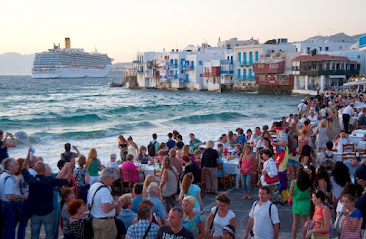Shortly before the start of the summer season, Greece is preparing to open its tourism this year earlier than ever, with the signs pointing to a double-digit increase in bookings from abroad up to 30% for this summer, protothema.gr reports.
And while it is still too early to calculate this year’s tourism revenue, the €15 billion budget forecast by the financial staff for this year seems, now, rather… conservative – provided, of course, that there will be no new reversal of epidemiological data inside and outside Greece – with Greek tourism having all the dynamics to reach the revenue-record of 18.2 billion euros in 2019.
These encouraging projections are coming at a time when Europe as a whole seems more prepared to attempt, following 2.5 years, a partial return to normalcy by gradually lifting restrictions, not only on travel but also on the daily lives of citizens. The signal that our country is giving off to its potential foreign visitors this year is that the country will be able to open from the beginning of March.
Even though the summer itinerary of the airlines, which carry 7 out of 10 foreign visitors to the country with the rest coming by land, is scheduled to start in the majority of the islands from the end of March or the beginning of April onwards, the fact that our country is signaling it is ready again for the 2022 season, this creates a positive climate abroad in terms of planning and organization.







